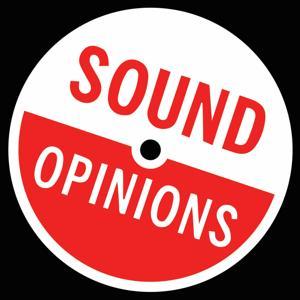I can still remember being in high school in the early 90s and having my mind blown by seeing the video for Fishbone’s "Sunless Saturday" on MTV’s 120 Minutes and going to my local record store (R.I.P., Twisted Disque on Jamaica Ave) to get their album The Reality of My Surroundings, and then walking around Queens with it blasting in my headphones, mesmerized by the way they melded genres like ska, funk, punk, metal and more. Fishbone is one of the bands that showed me what was possible, as far as breaking down both genre and racial barriers in music. SO! When I learned that Fishbone were getting ready to release their first full-length album in almost 20 years, their awesome new LP Stockholm Syndrome and that they would be doing interviews, I knew I had to make it happen.
It was a blast connecting with Angelo Moore, who is the only permanent member of Fishbone — the only one who has been in the band for its entire 40 year history, while others have left or joined or left and re-joined — for the conversation in episode 125. We talked about his earliest experiences with creativity — he started out pop-locking and street dancing in Hollywood before he started playing music. He wanted to get a keyboard but his dad insisted on saxophone, and thus the seeds for Fishbone were planted. Angelo talks about meeting his bandmates in eighth grade and schlepping on the bus more than two hours each way from where he lived in the Valley to band practice in South Central LA, working up to their first show at Madame Wong’s and eventually scoring a major label deal that turned out to be a mixed blessing. We also delve into the ups and downs of their career, what he remembers about early encounters with the Red Hot Chili Peppers and Beastie Boys, and what inspired Fishbone’s new album, which is a true return to form — the sound of a band that has never been afraid to be completely themselves, in all of their bright, brash, political, genre-melding glory. (You might start by listening to the Stockholm Syndrome single "Racist Piece of Shit" to get a sense of the album as a whole.)
One caveat: You’ll notice that the audio sounds a little rough. The band had just begun a run of dates on Less Than Jake’s Summer Circus tour, and when Angelo joined our Zoom, he was on the road. Literally. He called while driving himself to soundcheck for a show in Florida. So it was a little more chaotic than the usual interview, with him attempting to navigate while answering my questions. You’ll also hear him stop for a pee break, mid-interview, which was hilarious.
Fishbone are on the road through late August and you can get tickets here.




































